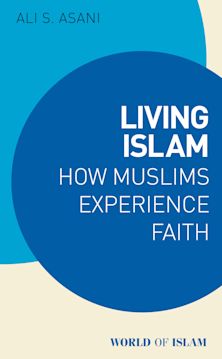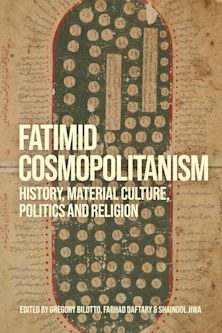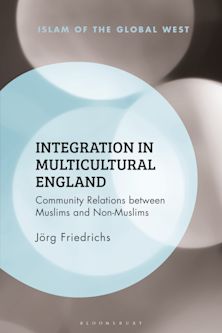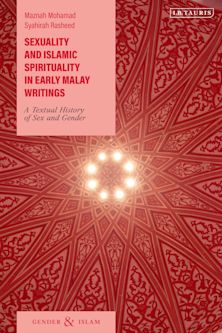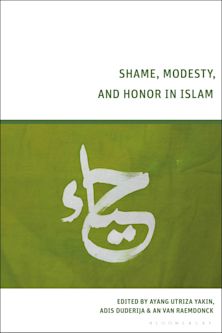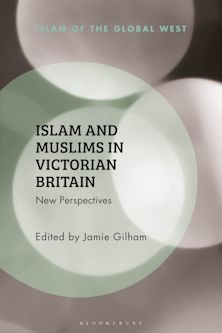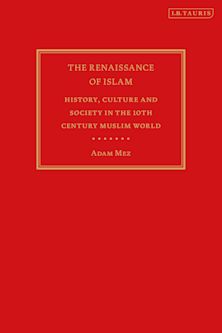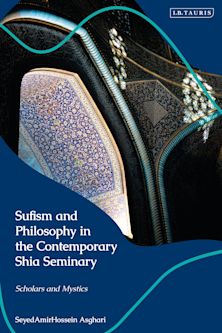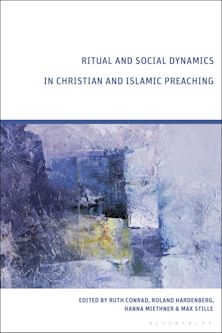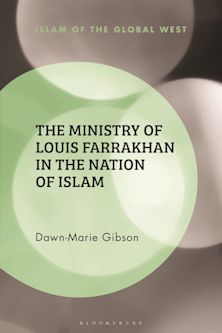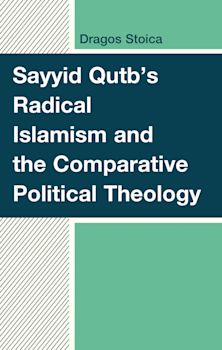- Home
- ACADEMIC
- Religious Studies
- Islam
- Being Muslim Today
Being Muslim Today
Reclaiming the Faith from Orthodoxy and Islamophobia
Being Muslim Today
Reclaiming the Faith from Orthodoxy and Islamophobia
This product is usually dispatched within 3 days
- Delivery and returns info
-
Free CA delivery on orders $40 or over
You must sign in to add this item to your wishlist. Please sign in or create an account
Description
"Qureshi promotes a moderate and inclusive view of contemporary Islam, with the intellectual underpinnings to support it." - Booklist, Starred Review
Accessible introduction to Islam and the Qur’an that explains how Muslims live and avoids the extremes of Orthodoxy and Islamophobia.
The truths of every religion are typically challenged and re-written, serving as potent grounds for some of history’s most enduring debates and conflicts. Perhaps no other religious tradition suffers as much from the dualistic fallacy of good and evil than does Islam. What does it mean to be Muslim today? Orthodoxy’s interpretation is idyllic and omniscient, simplistic to a fault. Islamophobes at the opposite end of the spectrum, cultivating damaging stereotypes that present a religion that most Muslims cannot relate to.
In Being Muslim Today: Reclaiming the Faith from Orthodoxy and Islamophobia, bestselling author Dr. Saqib Qureshi silences the noise that obscures the message of Islam. He provides a compelling and accurate presentation of the faith’s beginnings, its evolution throughout the last 1,400 years, and its relevance for today. Being Muslim Today simplifies complicated academic debates and reveals the heart and soul of a growing faith tradition that claims more than two billion adherents.
Chapters include lucid discussions of the origins of Islam, the Prophet Muhammed, and the rise of Islam through the ages. Qureshi also describes the twin perils of Orthodoxy and Islamophobia, both of which, he contends, badly misinterpret the true message of the faith. In a final chapter, Qureshi confronts the stereotype of Islam as an inherently violent religion, asking the West to hold a mirror to its own voracious appetite for conflict and colonization. Throughout, Qureshi encourages Muslims to reject pious certitude?the faithful must acknowledge the diversity of approaches and principals in the Islamic tradition, he writes, and adopt an attitude of theological humility. Some things are simply unknowable.
Table of Contents
Chapter 2 – The Qur’an: A Compendium of Messages
Chapter 3 – The Path – A Human Story
Chapter 4 – The Supporting Cast
Chapter 5 – A Body Without Mind or Spirit
Chapter 6: The Competition to Define Islam I: Islamic Orthodoxy
Chapter 7: The Competition to Define Islam II: Islamophobes
Chapter 8: Siblings not Suspects
Chapter 9: Pot Calling the Kettle Violent
Chapter 10: Where is our Emancipation?
Product details
| Published | May 07 2024 |
|---|---|
| Format | Paperback |
| Edition | 1st |
| Extent | 336 |
| ISBN | 9781538189320 |
| Imprint | Rowman & Littlefield Publishers |
| Illustrations | 1 BW Illustration, 13 BW Photos |
| Dimensions | 227 x 151 mm |
| Publisher | Bloomsbury Publishing |
About the contributors
Reviews
-
Contemporary Muslims are a more-than-diverse group. London School of Economics and Political Science Fellow Qureshi here explores assumptions made about being Muslim and questions of identity that contemporary Muslims often ask one another. The first part of the book explores the scriptures and early history of Islam in an effort to contextualize the teaching and fundamental beliefs of the religion. Qureshi's discussion is rooted in available historical evidence and takes into account conflicting interpretations. Woven into this narrative are strands on the burden of orthodoxy, but the author's main focus is on discovering Islam’s essential spirit, laying the groundwork that this essence could serve as a basis for binding all Muslims. The second part focuses on answering questions of Muslim identity, leaning towards broad, inclusive criteria that tolerate differences of opinion and practice. Qureshi explores the idea that it's impossible to follow Islam while embracing Western culture, suggesting this is a false dichotomy. He also interrogates what Muslims "should" believe and do and ultimately advocates for following one’s conscience. Overall, Qureshi promotes a moderate and inclusive view of contemporary Islam, with the intellectual underpinnings to support it.
Booklist, Starred Review
-
A critical assessment of modern Islam. In trying to shape his son’s understanding of Islam, Qureshi began a journey of exploration that led him to realize how modern Islamic orthodoxy, on one hand, and Islamophobia on the other, had warped perceptions of Islam into something it is not. The author introduces lay readers to the history of the religion, humanizes its original adherents, and clarifies the message of the Qur’an, countering the messages of ossified leaders and bigoted detractors. Qureshi uses much of the same historical and literary criticism techniques that theology scholars have used since the 1800s in examining the origins of Christianity. The author reclaims Muhammad, his contemporaries, and his immediate heirs from the fundamentalist viewpoint of perfection, clearly demonstrating their humanity and even frailty. He shows these early leaders as people capable of doubt and discord, as opposed to the infallible saints of legend. Similarly, the author demonstrates that the Qur’an and the hadiths of Muhammad have far more nebulous origins than many present-day religious leaders would allow. Qureshi recognizes that many of his explanations of Islam are not only unpopular, but even dangerous.... Yet Qureshi believes an open-minded approach to Islam is imperative for its message to resonate with future generations. The author uses an informal, even lighthearted, style backed up by solid research.... A brave and challenging message for 21st-century Muslims and non-Muslims alike.
Kirkus Reviews
-
A vivid, engaging exploration of issues of faith and Muslim identity. Qureshi’s voice is bright, humble, and curious, and the author wears his considerable learning lightly. A valuable addition to explorations of how we think about engaging with religious traditions to live meaningful lives.
Carla Power, author of If the Oceans Were Ink: An Unlikely Friendship and a Journey to the Heart of the Qur'an and contributor to The Guardian, The New York Times Magazine, Vogue, and Time Magazine
-
Broad ranging yet accessible, Qureshi’s account of a viable and hopeful Islam embraces doubt as emancipatory while seeking a new confidence for those of his son’s generation. Finding comfort in the spirituality of the Sufi path and better answers in the philosophical traditions of Islam, he argues for a modern Islam that does not shy away from asking difficult questions about the politics of violence, misogyny, and many other forms of religious oppression. Perhaps the ultimate lesson for us to take away is that living as a person of faith—Muslim or otherwise—in our world is both challenging and rewarding. And that is precisely why this book should be read, as it engages those challenges that are common to us all.
Sajjad Rizvi, Professor and Director of the Institute of Arab and Islamic Studies at the University of Exeter
-
A courageous, candid, and personal account of the challenges of being Muslim in the twenty-first century, both within the global context and also within a highly complex faith community. Highly accessible and relatable, Being Muslim Today presents both a compelling insight into Islam’s interpretation throughout the centuries as well as a prescription of how the true spirit of the religion’s vibrant tradition and intended vision can be regained. A must-read for Muslims or anyone serious about understanding Islam.
Saeed A. Khan, Associate Professor of Near East and Asian Studies and Director of Global Studies at Wayne State University
-
Qureshi’s Being Muslim Today is a welcome addition to the literature, advancing what Bauer calls a 'culture of ambiguity' in his forth-write and accessible prose about the ‘basics’ of Islam. Though racial justice is seldomly addressed, Qureshi does not shy away from tackling many of the central debates plaguing Islamic communities in the West. From gender equity to orthodoxy to propensity for violence, this work allows a young adult and general audience to gain the ability to parse nuanced knowledge on Islam while illuminating reductive messaging on the faith, both from within and ‘outside’ Islamic communities.
Hebah Farrag, Assistant Director of Research, University of Southern California, Center for Religion and Civic Culture

ONLINE RESOURCES
Bloomsbury Collections
This book is available on Bloomsbury Collections where your library has access.

















